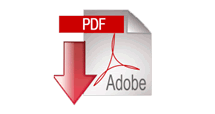In this lesson you will learn what to include in your biography to ensure you are an attractive prospect to agents and publishers. You will also learn how to avoid including irrelevant or damaging information.
In the previous lesson you learned how to write a brief synopsis. In this lesson you will discover the importance of a good biography.
By this point you will have already completed the first three paragraphs of your cover letter. The fourth paragraph covers two key elements: the first is your biography, the second is your marketing plan. This lesson is all about you, your profile as a writer and any interesting facts that may act as potential marketing hooks.
In this paragraph you will be presenting the following key facts:
- Your writing history
- Information about you as a person
- Your marketing platform
A common mistake writers make is to assume that their life, beyond writing, is of little interest to a publisher. This is simply not the case. In the modern internet age the writer is as much a product as the book, and it is for this reason that writers must sell themselves when pitching their book.
To help you construct the first part of your final paragraph, I will go through each of the key points in turn:
Your writing history: Writing history is not an essential part of getting published; many debut writers, with no writing history, are able to secure a book deal. However, detailing your writing history will give the agent/publisher a feel for just how serious you are as a writer. If you are able to paint a picture of a writer who has been through a series of steps, over a number of years, developing and honing your craft in the process, this will be a big positive. Therefore, I would suggest that you consider including the following information:
- ANY published material. This can be books, magazine articles or even poems. Any published work will show that someone, somewhere, has taken a gamble on you and your writing
- Any writing competitions in which you have been placed
- Any long term writing groups to which you belong
This is not an exhaustive list, but gives you an indication of the kinds of information you should be including.
Information about you as a person: The aim here is to give the agent/publisher a snapshot of you as a person. The reason for this is twofold. The first is to flesh out your proposal, to help the agent see you as a person and to make it that little bit easier for them to say yes. The second is for potential marketing opportunities. If you are a skateboarding grandmother or a skydiving housewife, then these are all hooks for a marketing camping. Let me give you two examples:
The Stephen King publishing story is pretty famous, but let me tease out one fact. Wikipedia says, ‘King actually threw an early draft of the novel in the trash after becoming discouraged with his progress writing about a teenage girl with psychic powers. His wife retrieved the manuscript and encouraged him to finish it.’ [http://en.wikipedia.org/wiki/Stephen_King] This throwaway incident is, in fact, a great hook for any media outlet and instantly provides an interesting story that can be used to kick start a marketing campaign.
The second example is in regards to GP Taylor. He is a children’s writer, but more importantly, at the time of his first novel being published, he was a vicar. Once again, ‘vicar turned writer’, provides a great ‘in’ for a media campaign. The point is that for GP Taylor his job as a vicar may have seemed mundane and unimportant, but to the marketing department it was gold dust.
Summary
- In the modern internet age the writer is as much a product as the book
- Include any writing history
- Include any aspect of your life that might act as a good marketing hook


